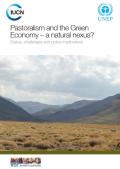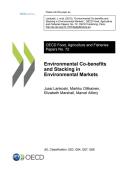The Korean government adopted “green growth” in 2008 as an environmentally friendly growth strategy. The energy efficiency of Korea, however, is still relatively low due to the large portion of energy intensive industry (EII) in its manufacturing sector. To improve energy efficiency in Korea, from an EII perspective a new approach has to be taken because restructuring entire industries would take too much time and be too costly. This study aims to emphasize the importance of innovation and analyze the effects of R&D on product and process innovations in EII in Korea. The Probit model is adopted to estimate the effects of eight determinants in the Korea Innovation Survey 2008 data. The results of this study demonstrate that one of the most important determinants, the R&D personnel ratio, has a strong positive effect on both product and process innovation, while another determinant, R&D intensity, only has a strong and positive effect on process innovation in EII. Because of the resulting innovation, energy policies should be enacted to enhance energy efficiency.


While the world’s cities face an array of challenges and priorities – which are as diverse as the cities themselves – the need to establish a more sustainable footing for urban and peri-urban industry is common to many. Including industry in integrated strategies, policies, and planning to manage resource use will be crucial for these cities in the pursuit of greater environmental sustainability, as well as employment and improved living standards.
This report is among the first publication to provide concrete policy, finance and technology best practice guidance on addressing the heating and cooling sectors in cities through energy-efficiency improvements and the integration of renewable energy technology. It provides a glimpse into what integration and systems thinking look like in practice when addressing challenges in the energy, transport, buildings and industry sectors. The report surveyed low-carbon cities worldwide to identify the key factors underlying their success in scaling up energy efficiency and renewable energy, as well as in attaining targets for zero or low greenhouse gas emissions. More than thirty case studies are presented in the report. District energy systems (DES) emerged as a best practice approach for providing a local, affordable and sustainable energy supply, improve energy efficiency and support energy access efforts. They represented a significant opportunity for countries and cities around the world to move towards climate-resilient, resource-efficient and low-carbon pathways.
